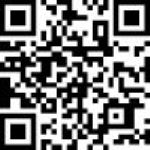【Special issue: Confucian ethos: Etiguette & Vernacular life】The Morality of Using Human Embryonic Stem Cells, from a Confucian and Buddhist Perspective: A Bioethics Debate in Contemporary Medicine and Law
Author: Hsing-Ling Lee(Department of Chinese, National Taiwan Normal University), Hsing-Yin Li(Department of Life Science, National Taiwan Normal University)
Vol.&No.:Vol. 58, No. 2
Date:September 2013
Pages:75-108
DOI:10.6210/JNTNULL.2013.58(2).04
Abstract:
Human embryonic stem cells (hESCs) possess the potential of self-replication and differentiation, and, in certain corporeal conditions, can exhibit multiple functions. Since their discovery in 1945, hESCs have been widely used in cell therapy-centered medical research, treatment, drug-safety testing, and other applications.
Ethical controversies surround the use of hESCs in medical research and applications because embryonic life is sacrificed in the process of obtaining these cells. Although other types of stem cells can be used, hESCs are preferred by most medical researchers because of their higher success rates in medical research development and applications. Nevertheless, bioethical and moral debates continue.
From the perspective of Buddhist and Confucian doctrines, human embryos are “human-like” and to deprive one of life is no different from committing homicide. Based on the belief that all human life, whether fully formed or not, should be protected, this thesis counters the popular notion that a fetus is granted the right to life only when it passes through the birth canal. An embryo possessing 23 pairs of chromosomes and which eventually develops into a functioning human being should be granted the proper respect. Medical science and biotechnology can improve the quality of human life, but they must strive to do so only under the condition that no human embryo is denied life.
Keywords:human embryonic stem cells, bioethics, Buddhism, Confucian, medical ethics
 《Full Text》
《Full Text》
